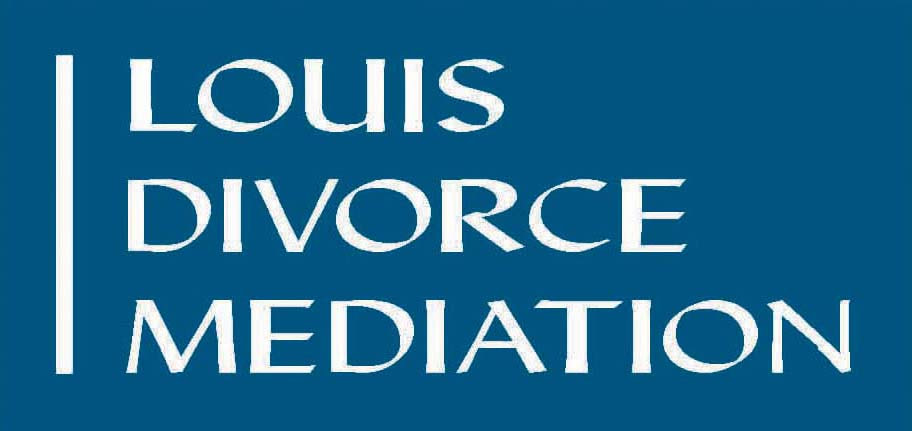Louis Divorce Mediation ~ Online and In-Person Mediation in Chicago
|
In any life transition, especially separation and divorce, you will be faced with the daunting challenge of making important decisions. For many, it’s hard to think ahead, to be clear about how to move forward. And yet, how decisions are made, in this time when it’s normal to feel uncertain and vulnerable, is critically important to set the stage for the best next steps in your life journey.
Structuring the Discussion As a divorce mediator, I want my clients to be aware of and understand the full scope of topics that will be discussed in our mediation sessions. All clients are provided with an extensive outline of divorce mediation topics, which is also available here. Introducing structure into our conversations can help us to stay focused. You may also find that some of these topics are easy to discuss on your own, saving mediation time and expense. As a mediator, I support and encourage you to work together on your own, as long as your style of communication and negotiation does not create unnecessary conflict. I always advise clients to avoid discussions that risk a setback in the overall progress of mediation. And when in doubt, it’s usually best to save the conversation for our mediation sessions, when I can help, as a neutral third party, to foster a positive climate in which this hard work of decision-making can take place. Goals for the Process In divorce mediation, I am committed to two primary goals that relate to your decision-making process:
While it can be very difficult to get two people to agree on what is “fair,” I find it easier for each of you to make your own determination about what is “acceptable.” Mutually Acceptable Decision-Making In most successful divorce mediations, the outcome consists of many decisions, each of which is seen by both spouses as being acceptable. I typically ask each of you, “Are you okay with this?” or “Can you live with this?” If the answer is “Yes,” what you are telling me is that this particular outcome (decision) is acceptable to you. If you both answer in the affirmative, we have achieved the goal of a mutually acceptable decision. Contrast this to a conversation about fairness. Many clients will tell me that their goal is “for everything to be fair,” or “to be fair to my partner,” or “to get what is fair.” The problem with this approach is that “fair” means different things to different people. While it can be very difficult to get two people to agree on what is “fair,” I find it easier for each of you to make your own determination about what is “acceptable.” This also acknowledges a reality that, in any negotiation, there will typically be some degree of back-and-forth dialogue and a level of compromise to achieve the ultimate goal—meeting your underlying needs and interests, as well as those of your children. Informed Decision-Making When I discuss the concept of “informed decision making,” I point to two key ingredients. Legal Information: First, divorce mediation is a different (and, in my opinion, better) process than litigating a divorce in the court system, because of the flexibility and creativity that are offered to you in mediation. At the same time, I believe that it’s important for my clients to be aware of the laws that would apply to their situation if a judge had to make the final decision because clients and attorneys were not able to agree. If you have an attorney assisting you in the mediation process, or if you consulted with an attorney before coming into mediation, you may already have this information. If you, like many clients, are participating in mediation without attorneys, I will provide you with basic information about the laws pertaining to divorce proceedings. I always tell my clients that it’s up to them to decide how to use this information in coming to their agreed-upon decisions. Financial Disclosure: Secondly, the end of a marriage marks the end of an economic partnership. While a marriage is comprised of a complex series of relationships, it’s essential to stay focused on what it means to unwind the finances of a marriage. In some respects, this is the same as two business partners who decide to end their business relationship. See an earlier posted discussion of the kinds of relationships addressed within mediation. So when we are discussing how to end a marital financial partnership, we are looking at how assets acquired and debts incurred during the marriage will be divided. And we are also looking at what the needs may be to sustain two households in the future. Full financial disclosure of assets, debts and income is the process that allows both of you to have equal access to this essential information. The Best Framework for Discussion The divorce mediation process supports informed decision-making, by making sure that both spouses have legal and financial information. This framework for discussions then enables and empowers you to come to decisions that you both feel are acceptable, creating a guidepost for gaining more clarity about how you will emerge from this critical life transition.
0 Comments
Leave a Reply. |
Categories |
David Louis, MPA, CDFA® • Louis Mediation Services - Chicago
|
Chicago Office: 1700 W Irving Park Rd., Suite 105, Chicago, IL 60613
Northbrook Office: 555 Skokie Blvd., Suite 500, Northbrook, IL 60062 |
Copyright © 2024


 RSS Feed
RSS Feed